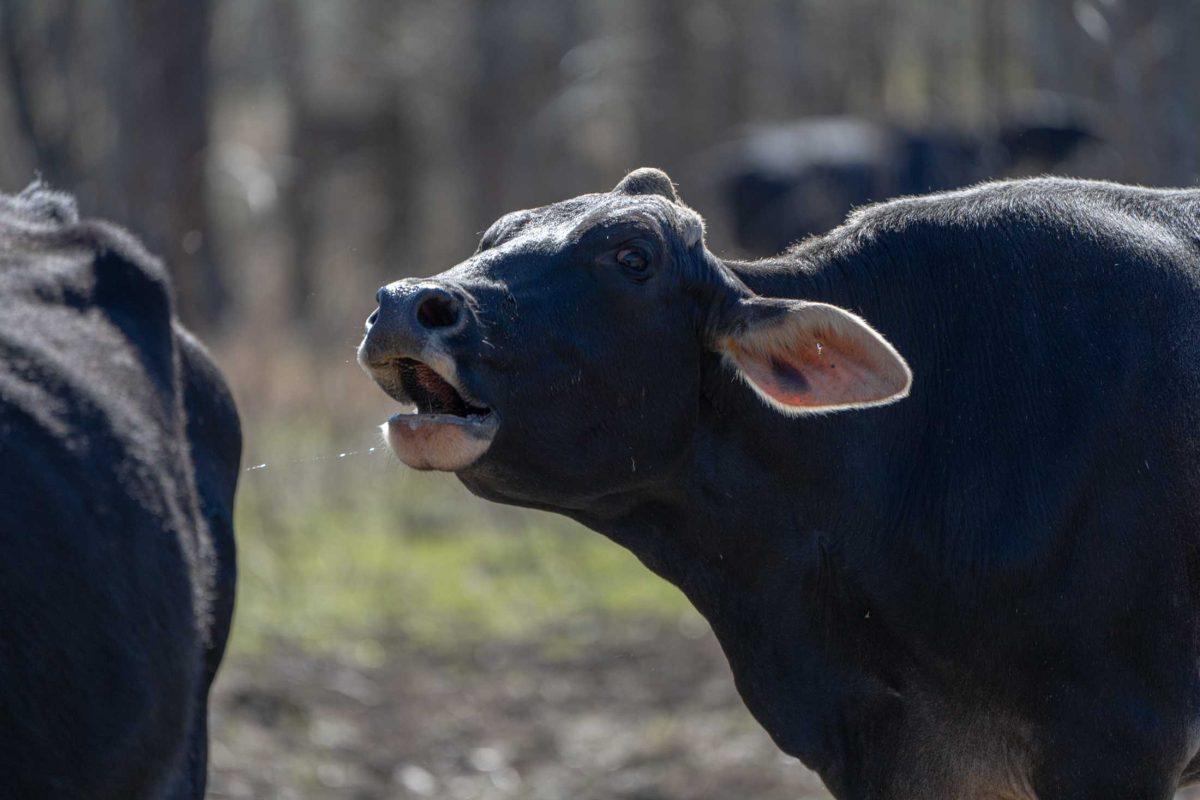An LSU professor and researcher developed a new vaccine that combats herpes viruses in cattle.
Dr. Shafiqul Chowdhury, a virologist and professor at the LSU School of Veterinary Medicine, developed the vaccine that produces protective proteins of bovine herpes and other similar viruses to prevent respiratory disease in cattle populations.
MORE NEWS: AgMagic cultivates understanding of Louisiana agriculture
“Humans have a similar virus that causes cold sores,” Chowdhury said. “We get flare-ups too, when we experience stress. It comes and goes, but it lives with you for life. It’s the same story with cattle.”
Sick and dying adult cattle affected by bovine herpes result in the loss of beef production, dairy production and possible abortion in pregnant cattle, causing the death of around 8 million calves each year and costing the cattle industry more than $1 billion.
Chowdhury explained the disease is so fatal due to the virus initiating immunosuppression in the cattle, or a depressed immune system. This makes the cattle more vulnerable to respiratory infection, resulting in pneumonia and death.
Before this vaccine, cattle were, and still are, treated with a commercial vaccine “cocktail.” Unlike the vaccine cocktail, Chowdhury’s vaccine only uses one virus, whereas the cocktail uses multiple mixed viruses, therefore producing more complications.
According to the LSU Media Center, the current vaccine cocktail is less effective than Chowdhury’s vaccine. Complications linked to the cocktail kill more than one out of five calves.
“When it comes to infection, you lose productivity,” Chowdhury said.
Chowdhury has been working his whole life with herpes viruses in horses, pigs and now cattle.
He began his journey to this vaccine at Kansas State University in 1990 as an assistant professor, where he decided to work with their large cattle population. He spent 18 years in Kansas before coming to LSU in 2008.
As the only virologist in LSU’s vet school, Chowdhury spearheads the experiments with a team consisting of a pathologist and a lab animal director. They take on experiments with about 15 to 20 calves, 500 pounds each, for 2 months at a time. These experiments in total cost around $30,000.
Chowdhury’s vaccine is the first of its kind to come out of LSU. But there’s more work to be done.
“The vaccine that is publicized was actually developed almost 6 years ago. Now, we are far more advanced,” Chowdhury said. “Hopefully, [in the future] we will have developed a much better vaccine that will be safer, better for the long run, and will be cheaper.”
Chowdhury has received many awards for his research, excellence and innovation in his extensive career, but he could only ask for one more thing.
“It is my wish that before I retire, I see the commercialization of this vaccine so I can enjoy the fruit of this effort. Not just financially, but also to see people are using the vaccine in my field. That is the hope,” Chowdhury said.





